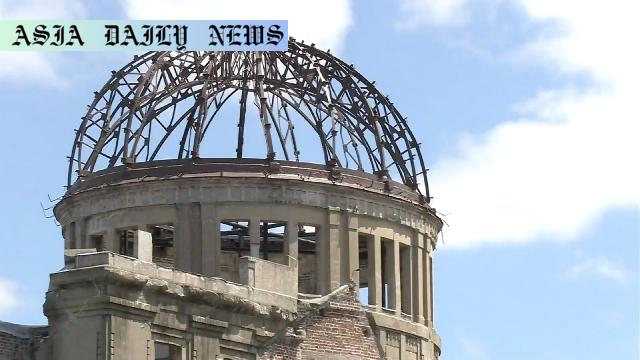Hiroshima remembers atomic bomb victims 80 years later, hosting a global ceremony to honor victims and advocate for nuclear abolition.

Reflecting on Hiroshima: 80 Years Later
Eighty years ago, on August 6, 1945, the Japanese city of Hiroshima was devastated by the first use of an atomic bomb in warfare. The catastrophic event not only leveled a thriving city but also brought an unprecedented level of human suffering. Today, Hiroshima serves as a stark reminder of the horrors of nuclear war and the resilience of humanity in the face of such tragedy. This year marks the 80th anniversary of the bombing, an occasion for reflection, mourning, and renewed calls for global nuclear disarmament.
Hiroshima’s Peace Memorial Park, built at the epicenter of the explosion, once again became the venue for the annual ceremony to remember those who perished. The Prime Minister of Japan, Ishiba Shigeru, attended alongside representatives from more than 120 countries, including nuclear powers like the United States and the United Kingdom. This year’s event held special significance, not only as a milestone anniversary but also as a global plea for peace amidst rising nuclear threats in the world.
The Ceremonial Observances
Among the traditions observed on this solemn day was the addition of names to the park’s cenotaph. The monument now lists 349,246 atomic bomb victims, including those who survived the bombing but have passed away in the past year. At precisely 8:15 a.m., the time when the bomb exploded 80 years ago, attendees observed a moment of silence. This poignant act serves as a collective acknowledgment of the immense loss and a commitment to ensuring such a tragedy is never repeated. Survivors, known as hibakusha, recounted their personal narratives, offering a human dimension to the horrific statistics of death and suffering caused by the atomic bomb.
Though the average age of hibakusha is now over 86, their earnest efforts to share their stories have given rise to a powerful legacy. However, as their numbers continue to dwindle, the urgency to preserve their experiences and lessons grows. A growing initiative around the world focuses on documenting their testimonies and passing the torch of advocacy for disarmament to younger generations.
Global Calls for Nuclear Disarmament
Hiroshima’s annual ceremonies are as much about remembrance as they are about activism. The call for the abolition of nuclear weapons has never been more imperative. Last year, Nihon Hidankyo, one of the survivors’ groups, was awarded the Nobel Peace Prize—a significant recognition of their tireless advocacy for global nuclear disarmament. Such moments have lent momentum to the broader movement for peace, even as the political realities of today remain resistant to change.
Unfortunately, modern geopolitics paint a grim picture. Nuclear powers, including Russia and North Korea, continue to rely on deterrence strategies rather than engaging in meaningful disarmament. Russia has even suggested the possible use of nuclear weapons during its ongoing conflict in Ukraine. These developments underscore the urgency of Hiroshima’s message: that a world free of nuclear weapons is not just an idealistic goal, but a necessity for the survival of humanity.
A World United for Peace
This year’s ceremony saw record international participation, with representatives from 120 countries and regions in attendance. Such an assembly underscores the universal resonance of Hiroshima’s plea for peace and reflects a shared commitment to preventing the horrors of nuclear warfare. At the personal, regional, and global levels, there is a growing recognition of the critical need for cooperation and diplomacy to chart a better future.
Hiroshima’s 80th anniversary not only honors the memory of those who lost their lives but also serves as a platform for progress. The city’s Peace Memorial Park stands as a lasting testament to resilience and the unyielding human desire for peace. As countries and leaders come together to commemorate this milestone event, it remains to be seen whether their actions will align with the solemn vows made on this day.
Commentary
Hiroshima: A Reminder of Humanity’s Resilience
The commemoration of Hiroshima’s 80th anniversary is both poignant and profound. It reminds us of the unimaginable human suffering caused by nuclear warfare, but also showcases the extraordinary resilience of survivors—the hibakusha—and the city itself. Over the years, Hiroshima has transformed from a site of devastation into a global symbol of peace. This resilience reflects not only the strength of its people but also their enduring commitment to ensure that future generations understand the costs of nuclear conflict.
The Role of Survivors in Keeping History Alive
The hibakusha hold a unique role in the narrative surrounding Hiroshima. Their stories provide a bridge between the past and the present, offering essential insights into the human toll of nuclear warfare. However, with their numbers diminishing and their average age exceeding 86, the urgency to capture and preserve their firsthand accounts has become paramount. These stories serve as powerful testaments that underscore why such weapons of mass destruction must never again be deployed.
Aligning Actions with Promises
While ceremonial events like the one held in Hiroshima this year hold undeniable value, they must translate into substantive global action. It is disheartening that many nuclear powers continue to rely on these weapons rather than seek pathways to disarmament. The potential use of nuclear force, hinted at in recent global conflicts, makes Hiroshima’s message not only relevant but also urgent. The world must heed this call, fostering diplomacy over deterrence and collaboration over conflict.
In commemorating Hiroshima’s anniversary, we honor its victims and survivors while recommitting ourselves to a future where peace and humanity take precedence over destruction. It is a solemn reminder that the lessons of the past must inform our actions in the present and future.


